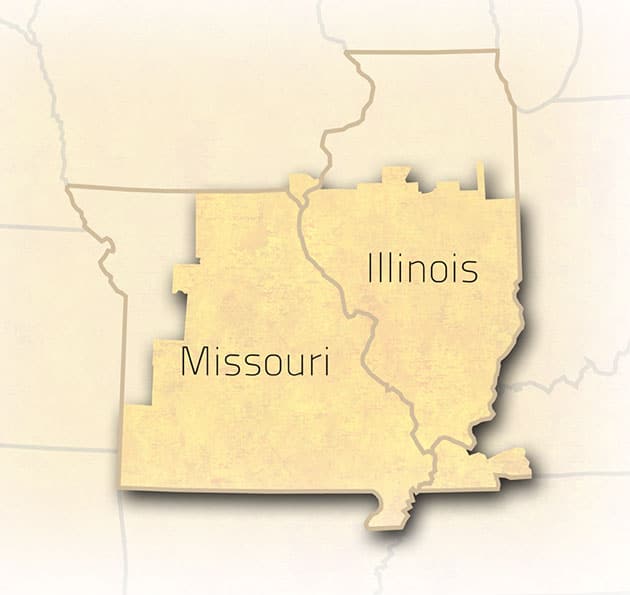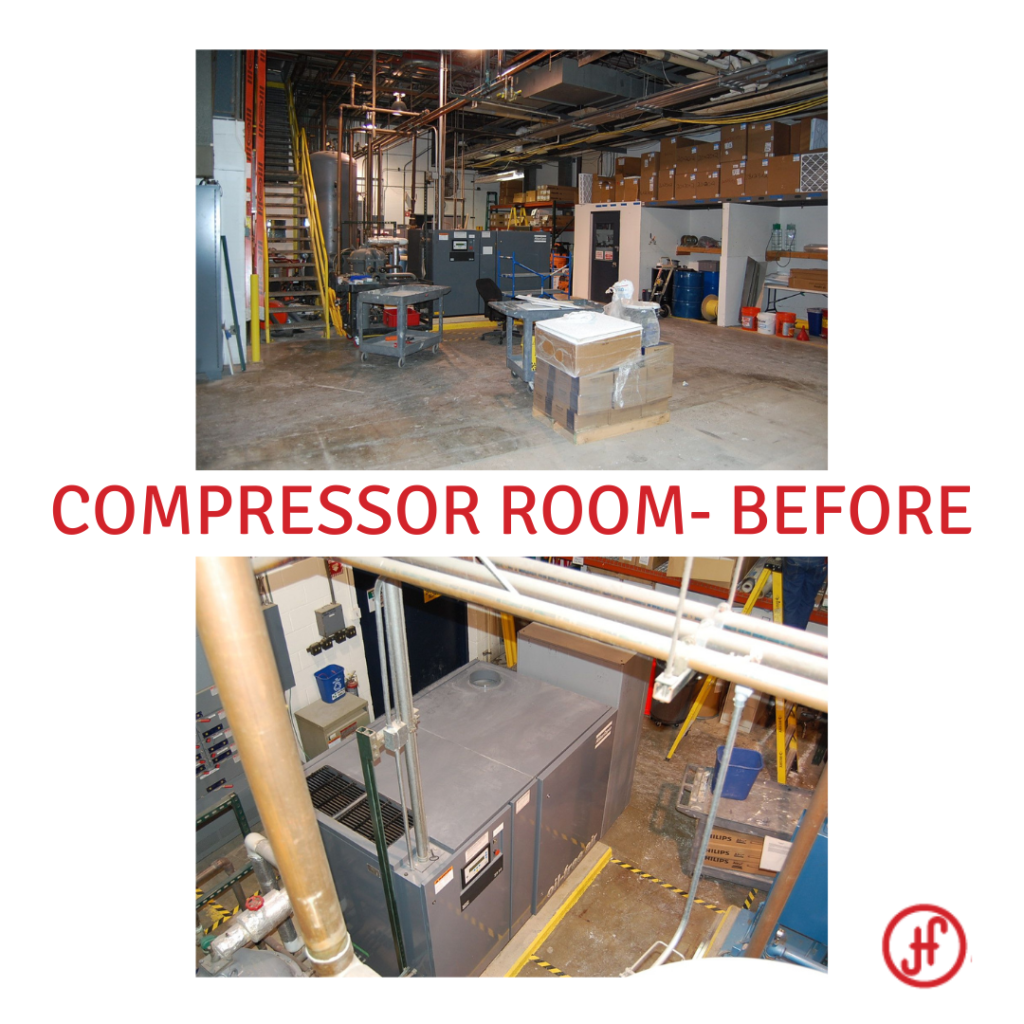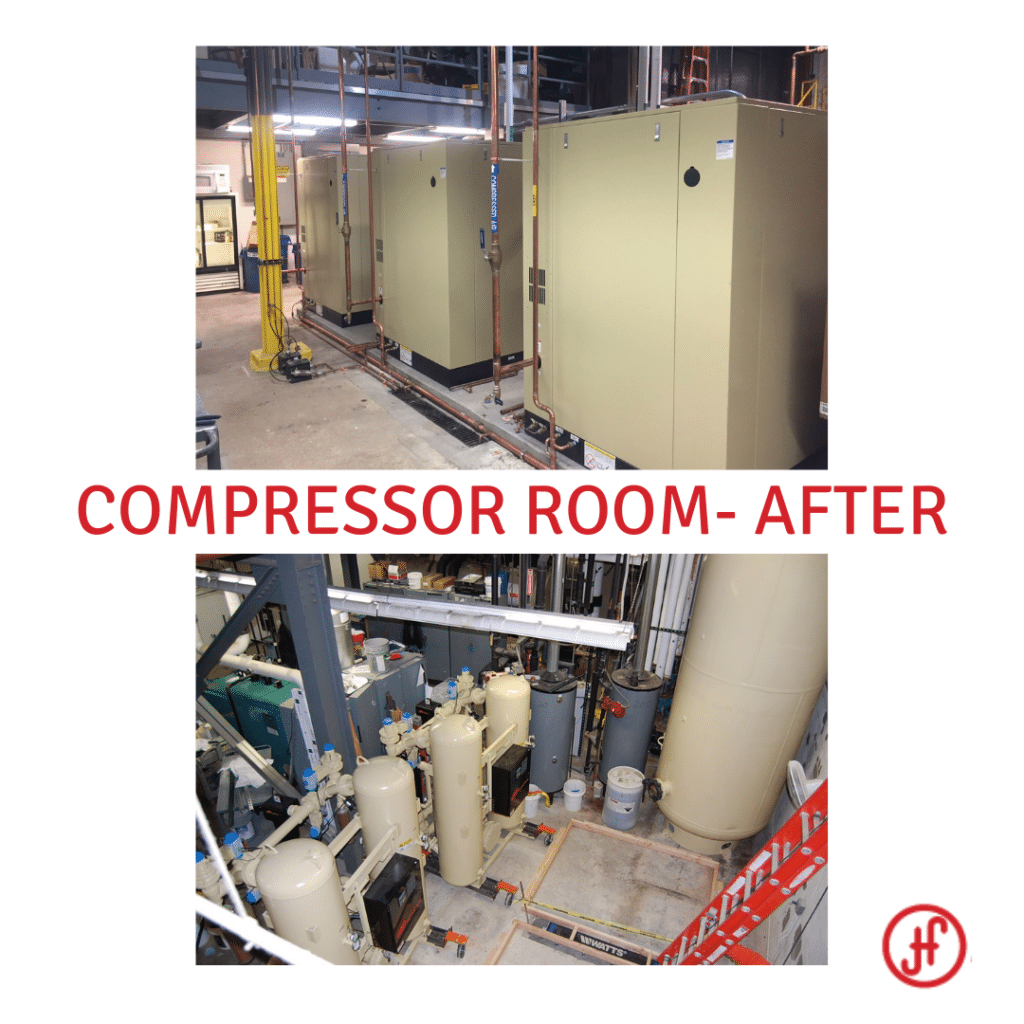Air Study Leads to Less HP and More Efficiency!
Posted by Admin
Background:
JHF's customer had three aging Atlas Copco units (two ZR90 fixed speed and one ZR90 variable speed, totaling 360HP) that were constantly requiring repairs and threatening downtime to critical manufacturing processes. This particular customer manufactures its product 24/7 with yearly volumes in the hundreds of millions – downtime is not an option. And with the aging, unreliable compressors, it was always a looming threat. The customer was ready to start receiving bids for a compressed air system with the exact HP ratings of the Atlas Copco units. That’s where the JHF Compressed Air Team offered a different approach.
Solution:
In a compressed air system, HP = energy costs. An air compressor that is oversized can lead to unnecessarily higher electric costs. Energy costs are not the only problem with inadequately sized systems – a compressor that is oversized or undersized can cause premature failure of internal components. JHF possesses the expertise and tools to learn the details about its customers’ compressed air systems by monitoring, measuring, and recording pressure and amperage draw of compressors during a typical week of usage with a Supply-Side Study. This study typically records key data points over the course of 7 days. That data is organized and explained in an easy-to-analyze report that the customer gets to keep. JHF performed this study for this customer’s system and found they didn’t require nearly the 360HP of capacity they thought they needed.
Impact:
JHF was able to use the Supply-Side Study to size a system that was ideal for the customer’s demand. Usage indicated the customer only needed a 75HP unit for most of its daily operations. Occasionally, during events that consumed large volumes of air, they required a 2nd 75HP unit. A 3rd unit was added for redundancy/backup. By properly sizing the compressors, JHF was able to reduce onsite system HP by 135! All 3 units installed are fixed speed as well, meaning reduced upfront costs and future repair costs vs. variable speed units. You might be asking, “don’t variable speed units reduce energy costs?” Yes, they typically do, but they are not always the solution when a fixed speed system can be accompanied by adequate air storage via receiver tanks and a demand valve, which are exactly what JHF installed. The addition of these two components allows for longer cycle times, but are specifically important to these compressors since they’re oil-free technology which don’t have a sump to blow down.
With industry-leading expertise and products, John Henry Foster was able to transform an unreliable, inadequately sized, expensive compressed air system into a system that is designed to meet the customer’s compressed air demand with redundancy, reduce the threat of downtime, save on energy costs, and save on maintenance costs over the life of the machines.
Schedule your initial, virtual consultation with John Henry Foster engineers, today!
Or, call your dedicated sales represenatative!



